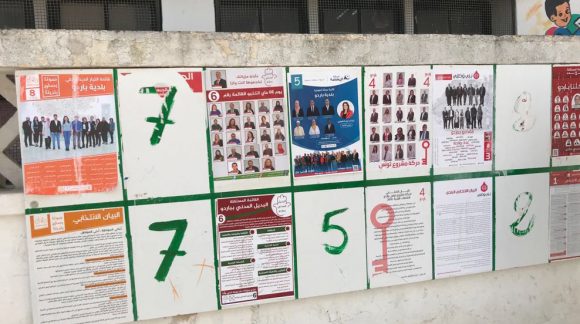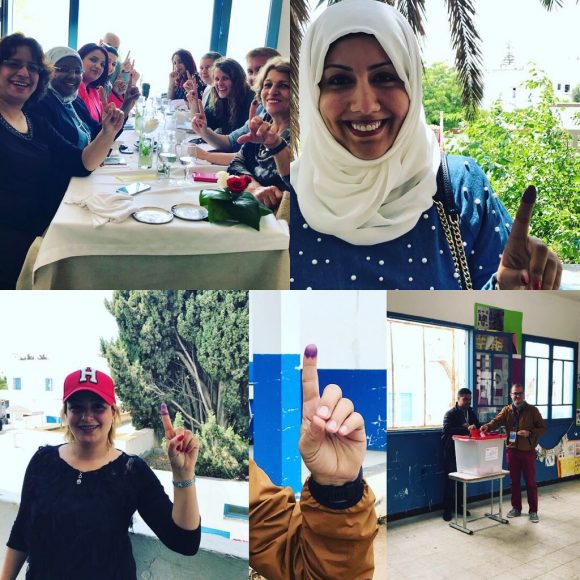Tunisia’s local elections: How to build trust in politics?

On 6 May 2018 Tunisians went to the polls to vote in the first municipal elections since the Jasmine Revolution in 2011. These elections had been postponed several times and experts widely regarded them as a test of the success of the democratic transition in Tunisia. How would the ruling national parties respond to a potential loss of influence at local level?
As expected, voter turnout was low at 35.6%. Many Tunisians abstained out of frustration with the ineffectiveness of the national-level political parties in addressing pressing problems like youth unemployment. Many people felt that they had voted in 2011 and 2014 without seeing much positive change in their daily lives. A sense of frustration with national politics was also reflected in the fact that independent lists were the largest winners in the elections.
Youth and the elections
But, despite the low turnout, certain facets of the election results showed a lot of promise. The participation of a large number of women and youth was one such highlight. 29.7% of lists were headed by women, and female candidates ended up winning 47% of seats in the municipal councils.
Dutch MP Anne Kuik accompanied NIMD to Tunis during the elections. She shares her insights.
The reforms following the 2011 revolution have opened up the political system for young people. The electoral law now contains provisions to ensure the inclusion of youth and women on candidate lists. But having the opportunity to be elected is one thing; an even bigger challenge is to learn the profession of politics.
Generations of Tunisians have grown up in an authoritarian country with no experience of democratic politics. In countries with a longer democratic tradition, young people learn the basics of democracy through civic education, running in elections for student councils, joining youth wings of political parties. The current generation of young Tunisians have not had such opportunities.

The School of Politics
The Tunisian School of Politics aims to fill this gap. It is a place where young Tunisian politicians can learn about democratic politics. It emphasizes a culture of trust and dialogue: one that is characterized by listening to citizens’ concerns and working together with political opponents to find common ground. Some graduates of the Tunisian School of Politics have gone on to become Members of Parliament or government ministers. Others are active in training other members of their own parties and transferring the skills they learned.
The low turnout for the municipal elections show that there is still a lot of work to be done to consolidate democracy in Tunisia. The political parties need to win the trust of the public by behaving transparently and responding to the needs of the people who elected them. NIMD will continue to support Tunisia in this process by investing in a new generation of effective and trustworthy politicians.
The Tunisian School of Politics is run and coordinated by the Centre des Etudes Méditerranéennes et Internationales (CEMI), and supported by NIMD in partnership with DEMO Finland. Learn more about our programme in Tunisia.